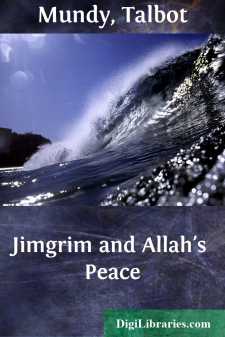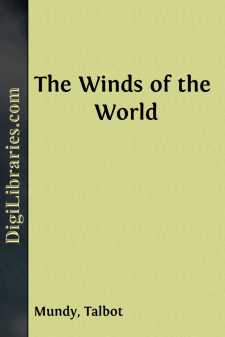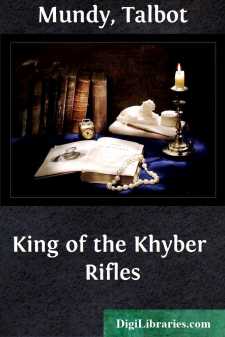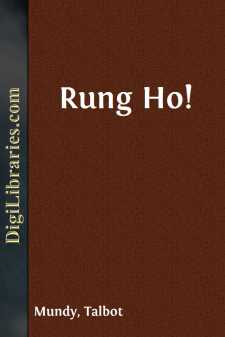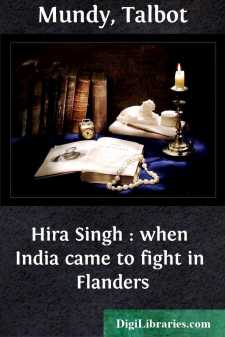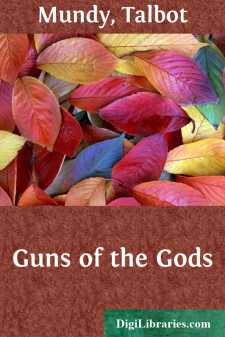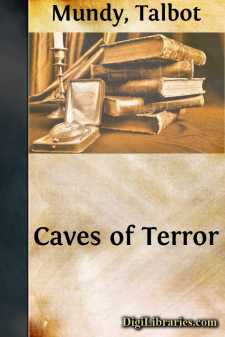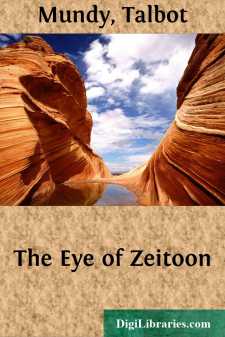Categories
- Antiques & Collectibles 13
- Architecture 36
- Art 48
- Bibles 22
- Biography & Autobiography 813
- Body, Mind & Spirit 142
- Business & Economics 28
- Children's Books 15
- Children's Fiction 12
- Computers 4
- Cooking 94
- Crafts & Hobbies 4
- Drama 346
- Education 46
- Family & Relationships 57
- Fiction 11828
- Games 19
- Gardening 17
- Health & Fitness 34
- History 1377
- House & Home 1
- Humor 147
- Juvenile Fiction 1873
- Juvenile Nonfiction 202
- Language Arts & Disciplines 88
- Law 16
- Literary Collections 686
- Literary Criticism 179
- Mathematics 13
- Medical 41
- Music 40
- Nature 179
- Non-Classifiable 1768
- Performing Arts 7
- Periodicals 1453
- Philosophy 64
- Photography 2
- Poetry 896
- Political Science 203
- Psychology 42
- Reference 154
- Religion 513
- Science 126
- Self-Help 84
- Social Science 81
- Sports & Recreation 34
- Study Aids 3
- Technology & Engineering 59
- Transportation 23
- Travel 463
- True Crime 29
Told in the East
by: Talbot Mundy
Description:
Excerpt
I.
A Blood-red sun rested its huge disk upon a low mud wall that crested a rise to westward, and flattened at the bottom from its own weight apparently. A dozen dried-out false-acacia-trees shivered as the faintest puff in all the world of stifling wind moved through them; and a hundred thousand tiny squirrels kept up their aimless scampering in search of food that was not there.
A coppersmith was about the only living thing that seemed to care whether the sun went down or not. He seemed in a hurry to get a job done, and his reiterated "Bong-bong-bong!"—that had never ceased since sunrise, and had driven nearly mad the few humans who were there to hear it—quickened and grew louder. At last Brown came out of a square mud house, to see about the sunset.
He was nobody but plain Bill Brown—or Sergeant William Brown, to give him his full name and entitlements—and the price of him was two rupees per day.
He stared straight at the dull red disk of the sun, and spat with eloquence. Then he wiped the sweat from his forehead, and scratched a place where the prickly heat was bothering him. Next, he buttoned up his tunic, and brushed it down neatly and precisely. There was official business to be done, and a man did that with due formality, heat or no heat.
"Guard, turn out!" he ordered.
Twelve men filed out, one behind the other, from the hut that he had left. They seemed to feel the heat more than Brown did, as they fell in line before Brown's sword. There was no flag, and no flag-pole in that nameless health-resort, so the sword, without its scabbard, was doing duty, point downward in the ground, as a totem-pole of Empire. Brown had stuck it there, like Boanerges' boots, and there it stayed from sunrise until sunset, to be displaced by whoever dared to do it, at his peril.
They had no clock. They had nothing, except the uniforms and arms of the Honorable East India Company, as issued in this year of Our Lord, 1857—a cooking-pot or two, a kettle, a little money and a butcher-knife. Their supper bleated miserably some twenty yards away, tied to a tree, and a lean. Punjabi squatted near it in readiness to buy the skin. It was a big goat, but it was mangy, so he held only two annas in his hand. The other anna (in case that Brown should prove adamant) was twisted in the folds of his pugree, but he was prepared to perjure himself a dozen times, and take the names of all his female ancestors in vain, before he produced it.
The sun flattened a little more at the bottom, and began to move quickly, as it does in India—anxious apparently to get away from the day's ill deeds.
"Shoulder umms!" commanded Brown. "General salute! Present-umms!"
The red sun slid below the sky-line, and the night was on them, as though somebody had shut the lid. Brown stepped to the sword, jerked it out of the ground and returned it to his scabbard in three motions.
"Shoulder-umms! Order-umms! Dismiss!" The men filed back into the hut again, disconsolately, without swearing and without mirth....



